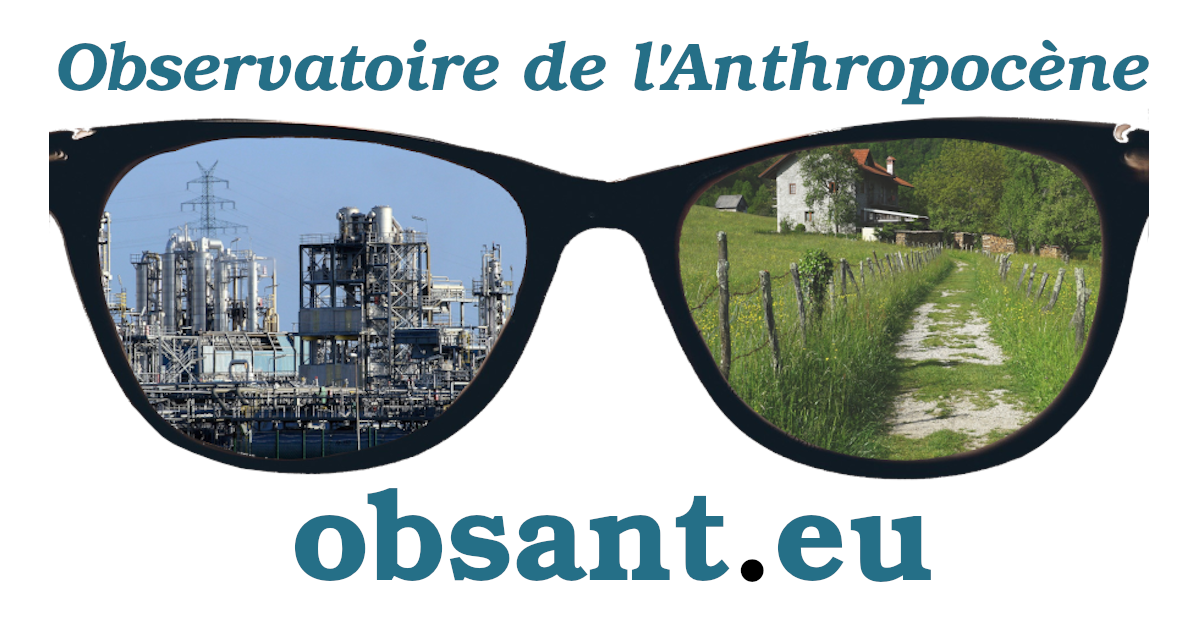Les champs auteur(e)s & mots-clés sont cliquables. Pour revenir à la page, utilisez le bouton refresh ci-dessous.
filtre:
climat collaps
Depuis 2009, la communauté scientifique s’appuie sur le concept des limites planétaires (PB) pour évaluer la stabilité de notre environnement. Ce modèle définit neuf seuils écologiques critiques qui, s’ils sont franchis, pourraient sceller le sort des écosystèmes et compromettre l’avenir de l’humanité sur Terre. À ce jour, les humains ont déjà transgressé six de ces neuf seuils fatidiques. Cependant, une nouvelle inquiétude émerge des laboratoires de recherche : une dixième frontière potentielle, jusqu’ici méconnue, vient d’être mise en lumière. Cette nouvelle menace concerne la désoxygénation aquatique à l’échelle mondiale, affectant les lacs, les réservoirs, les océans et d’autres plans d’eau.
Des modèles économiques défaillants pourraient faire s’effondrer l’économie mondiale à cause de la crise climatique, préviennent des experts. Les États et les institutions financières utilisent des modèles qui ignorent les chocs liés aux événements météorologiques extrêmes et aux points de bascule climatiques.
La production alimentaire et les combustibles fossiles causent 5 milliards de dollars de dégâts environnementaux par heure Un rapport du PNUE affirme que mettre fin à ces dommages est essentiel à la transformation mondiale nécessaire « avant que l’effondrement ne devienne inévitable ».
States and financial bodies using modelling that ignores shocks from extreme weather and climate tipping points
L’effondrement de la biodiversité menace la sécurité du Royaume-Uni, avertissent les chefs du renseignement […] La destruction des écosystèmes va accroître les pénuries alimentaires, le désordre et les migrations de masse, des effets déjà visibles.
Environnement : six des neuf limites planétaires ont été dépassées et d’autres signaux s’aggravent. Effondrement en vue ? Difficile à penser. Certains en sont persuadés. D’autres estiment que le pire n’est pas inéluctable. Mais si un sursaut est urgent et crucial, l’inertie politique, économique et sociale complique les choses.
Il ne faut pas attendre 2049, date fatidique choisie par Wallenhorst pour son nouvel essai. Pour conjurer les catastrophes annoncées, il faut une prise de conscience massive et immédiate, assène-t-il, à rebours du climatoscepticisme ambiant.
Nathanaël Wallenhorst est chercheur en sciences de l’environnement, professeur à l’Université catholique de l’Ouest, et membre de l’Anthropocene Working Group. Avec «Qui sauvera la planète?» (Actes Sud, 2023), il nous exhortait à une législation forte et urgente en matière d’environnement. Il nous revient avec «2049: Ce que le climat va faire à l’Europe» (Seuil), qui explore de manière très concrète à quoi pourrait ressembler notre vie quotidienne dans 25 ans, quand les principaux «points de basculement» auront été franchis.
Rob Hopkins has spent the past decades exploring one question: what if we could fall in love with the future? As co-founder of Transition Network and Transition Town Totnes, and author of four books, he travels the world helping communities cultivate imagination, longing and possibility. He believes that the transition we so urgently need depends on one thing above all: imagination.
À cause du changement climatique, la disparition des glaciers est vouée à s’accélérer. Elle pourrait atteindre son pic entre 2041 et 2055. D’ici au milieu du siècle, 2 000 à 4 000 d’entre eux devraient disparaître chaque année, en fonction de nos émissions de gaz à effet de serre, selon une étude publiée le 15 décembre dans la revue scientifique Nature Climate Change.
Glacial earthquakes are a special type of earthquake generated in cold, icy regions. First discovered in the northern hemisphere more than 20 years ago, these quakes occur when huge chunks of ice fall from glaciers into the sea. Until now, only a very few have been found in the Antarctic. In a new study soon to be published in Geophysical Research Letters, I present evidence for hundreds of these quakes in Antarctica between 2010 and 2023, mostly at the ocean end of the Thwaites Glacier – the so-called Doomsday Glacier that could send sea levels rising rapidly if it were to collapse.
UN GEO report says ending this harm key to global transformation required ‘before collapse becomes inevitable’
I always say that models are not predictions; they are qualitative illustrations of what the future could be. But as the future gets closer to the present, models can start being seen as predictive tools. It is the weather/climate dichotomy, so aptly exploited to confuse matters by politically minded people in the discussion about climate. Right now, we are getting close to the point that we could forecast a collapse in the same way as we can forecast the trajectory of a tropical storm. So, you remember how “The Limits to Growth” generated a long term forecast in 1972. Here it is
L’humanité a franchi toutes les frontières visibles. Du feu à la roue, de la poudre à canon à la bombe atomique, de la voile au saut vers la Lune. Nous avons ouvert la croûte terrestre pour en extraire des minéraux, construit des villes qui brillent comme des étoiles artificielles, connecté la planète entière en quelques secondes, et pourtant nous sommes toujours prisonniers des mêmes guerres tribales d’il y a 3 900 ans, aujourd’hui maquillées de drones, d’algorithmes et d’ogives nucléaires.
“We’re losing 120 calories per person, per day, for every degree of global warming.” That stark data point from a 2025 Nature study signals more than a threat to food security, it points to a growing risk to global financial security. Food system instability exposes markets to cascading shocks: inflation, trade disruption, insurance losses and sovereign credit stress. Yet these risks remain largely unaccounted for in core financial systems.
« L’avenir n’est pas un destin écrit, c’est une décision collective. » L’humanité a franchi toutes les frontières visibles. Du feu à la roue, de la poudre à canon à la bombe atomique, de la voile au saut vers la Lune. Nous avons ouvert la croûte terrestre pour en extraire des minéraux, construit des villes qui brillent comme des étoiles artificielles, connecté la planète entière en quelques secondes, et pourtant nous sommes toujours prisonniers des mêmes guerres tribales d’il y a 3 900 ans, aujourd’hui maquillées de drones, d’algorithmes et d’ogives nucléaires.
L’effondrement écologique est tout sauf un fantasme millénariste : c’est une réalité documentée, incontestable. Les émissions de CO2 continuent à augmenter au niveau mondial, la biodiversité animale et végétale est anéantie à un rythme toujours plus accéléré, le cycle de l’eau est profondément perturbé, les diverses formes de pollution continuent à transformer le monde entier en poubelle (notamment en poubelle à micro-plastiques), les points de bascule irréversibles sont atteints et franchis les uns après les autres, etc. Pas la peine de dresser ici une énième fois et dans le détail un tableau apocalyptique, on peut aller directement à la conclusion, qui est assez évidente : une partie de l’espèce humaine, la plus riche, la plus soumise à la folie productiviste et consumériste, la plus inconsciente, la plus égoïste, est en train de rendre la Terre inhabitable.
D’ici 25 ans, à quoi ressembleraient nos vies si nous n’agissons pas dès aujourd’hui ? Le docteur en sciences de l’environnement et de l’éducation Nathanaël Wallenhorst utilise des mots très forts : si nous restons sur la même trajectoire climatique, nous avons de grandes chances de "pulvériser nos sociétés". Julie Morelle et Pascal Claude le recevaient pour son nouvel essai "2049, ce que le climat va faire à l’Europe" (Editions Le Seuil) dans Le Monde en direct.
Le Future Risks Report explore les risques auxquels nous pourrions être confrontés à l'avenir. Ce rapport s’appuie sur les conclusions d’une enquête annuelle menée auprès de 3 600 experts issus de 57 pays et 23 000 personnes représentatives de la population dans 18 pays, les invitant à classer les 10 principaux risques du futur, en fonction de leur impact potentiel sur la société pour les cinq à dix prochaines années.
Report by joint intelligence committee delayed, with concerns expressed that it may not be published
![]()






